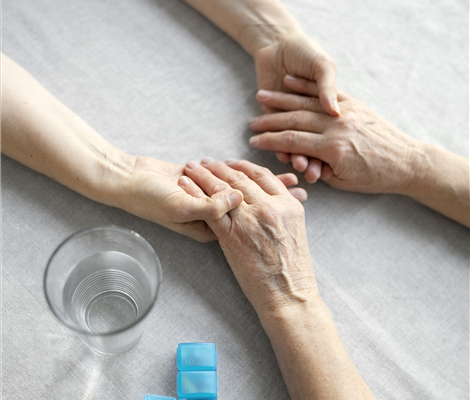
Parkinson’s Disease
What is Parkinson’s Disease
Parkinson’s disease is a movement disorder that affects the nervous system. Its symptoms occur because of low dopamine levels in the brain. Early signs include tremor, a loss of a sense of smell, and coordination problems.
Common Symptoms
- Tremor or the involuntary and rhythmic movements of the hands, arms, legs and jaw
- Muscle rigidity or stiffness of the limbs – most common in the arms, shoulders or neck
- Gradual loss of spontaneous movement, which often leads to decreased mental skill or reaction time, voice changes, decreased facial expression, etc.
- Gradual loss of automatic movement, which may lead to decreased blinking, decreased requency of swallowing and drooling
- A stooped, flexed posture with bending at the elbows, knees and hips
- Unsteady walk or balance
- Depression or dementia
Causes
- Parkinson's disease is caused by a loss of nerve cells in the part of the brain called the substantia nigra.
- Nerve cells in this part of the brain are responsible for producing a chemical called dopamine.
- Dopamine acts as a messenger between the parts of the brain and nervous system that help control and co-ordinate body movements.
- If these nerve cells die or become damaged, the amount of dopamine in the brain is reduced.
- This means the part of the brain controlling movement cannot work as well as normal, causing movements to become slow and abnormal.
- The loss of nerve cells is a slow process. The symptoms of Parkinson's disease usually only start to develop when around 50% of the nerve cell activity in the substantia nigra have been lost.
Treatments
There's currently no cure for Parkinson's disease, but treatments are available to help relieve the symptoms and maintain your quality of life.
These treatments include:
- supportive therapies, such as physiotherapy
- medication
- surgery (for some people)
You may not need any treatment during the early stages of Parkinson's disease as symptoms are usually mild.
But you may need regular appointments with your specialist so your condition can be monitored.
You might be offered a device to wear at home that monitors your symptoms. The device shares relevant information with your specialist.
A care plan should be agreed with your healthcare team and your family or carers.
This will outline the treatments and help you need now and what you're likely to need in the future, and should be reviewed regularly

UCSI Hospital Enquiry
We will revert to you asap
UCSI Hospital Enquiry
Hey there 👋
I'm here to help, so let me know what's up and I'll be happy to find a solution 🤓

